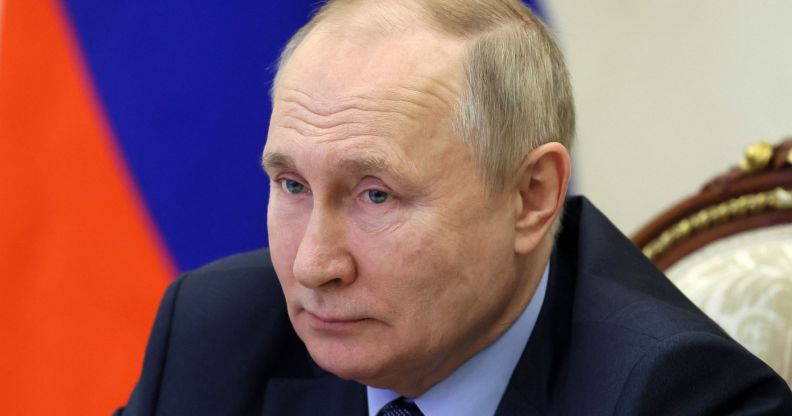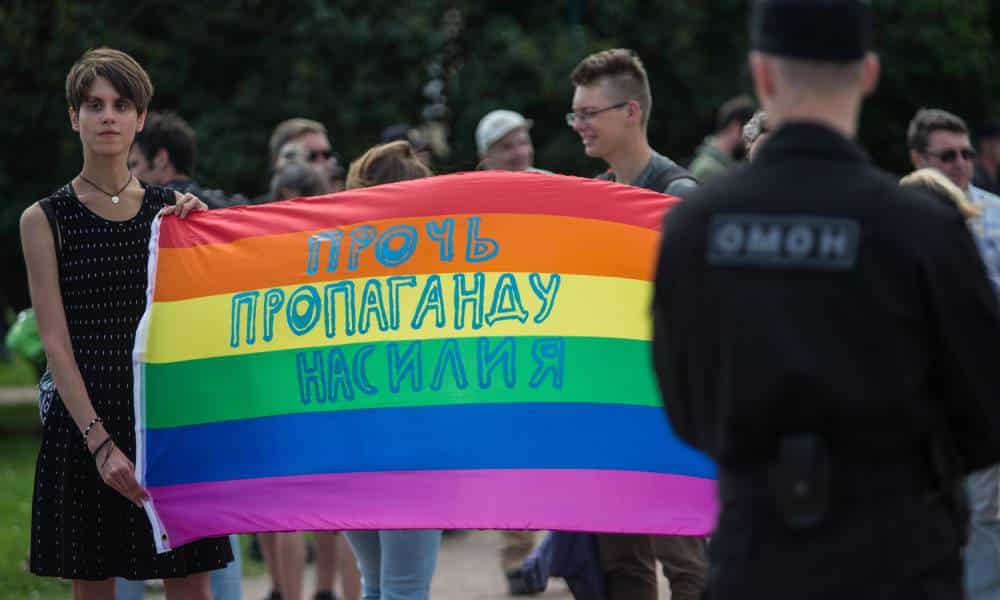Russia’s only LGBTQ+ history museum closes down amid Putin’s ‘propaganda’ crackdown

Vladimir Putin, who has made variously anti-LGBTQ+ statements in the past, signed an expanded law that would ban so-called LGBTQ+ ‘propaganda’ in Russia. (Sputnik via Getty)
A museum devoted to Russia’s LGBTQ+ history in St Petersburg has been forced to close after Vladimir Putin signed a bill expanding the notorious “gay propaganda” law to all ages.
The so-called “LGBT propaganda law” was originally signed in 2013, and banned media for under-18s promoting what officials deemed “non-traditional values”, similar to the British Section 28 law that was introduced by Margaret Thatcher’s Conservative government back in 1988.
On 4 December this year, Putin signed a new law that effectively banned all LGBTQ+ media for Russian citizens of all ages, with libraries and bookshops reportedly already pulling queer books from their shelves.
Those found in breach of the law can be fined up to 400,000 roubles (£5,400), while organisations can be fined five million roubles (£68,500).
As a result, Pyotr Voskresensky, the founder of what is thought to be Russia’s only LGBTQ+ history museum, has said he has had to close his exhibit, held at his St Petersburg flat, due to the archaic law.

He told Reuters: “Closing the museum is a personal tragedy, but not only [that]: this is the tragedy of my people and my homeland.”
Voskresensky, 37, is a doctor and LGBTQ+ rights activist, who opened the temporary exhibit on 27 November.
It aimed to explore the lives of LGBTQ+ figures in Russia, including the composer Pyotr Tchaikovsky, who historians widely agree was gay.
Voskresensky reportedly dedicated years to amassing the collection of Russian-made statues, jewellery, vases, books and art showcasing Russia’s LGBTQ+ community.
He claimed that around 200 people visited the pop-up museum during the two weeks it was open.
Speaking to Open Democracy as he opened the museum, Voskresensky said: “I’m opening the museum not because the time has come, but because time is running out… We are returning to archaic, medieval ideas.
“But the LGBT community has one advantage: it is immortal. In each new generation, there will appear people whom historian Dan Healy called ‘gender dissidents’. They will form their community on the ruins of what we do now.
“The fact we can look into our history now gives us some hope that if we have a past, we will have a future.”
Igor Kochetkov of the Russian LGBT Network told The Guardian that it’s “hard to know how [the expanded LGBTQ+ propaganda bill] will affect the community”.
“The situation of the LGBTQ+ community was already very dire before this bill,” he added.

